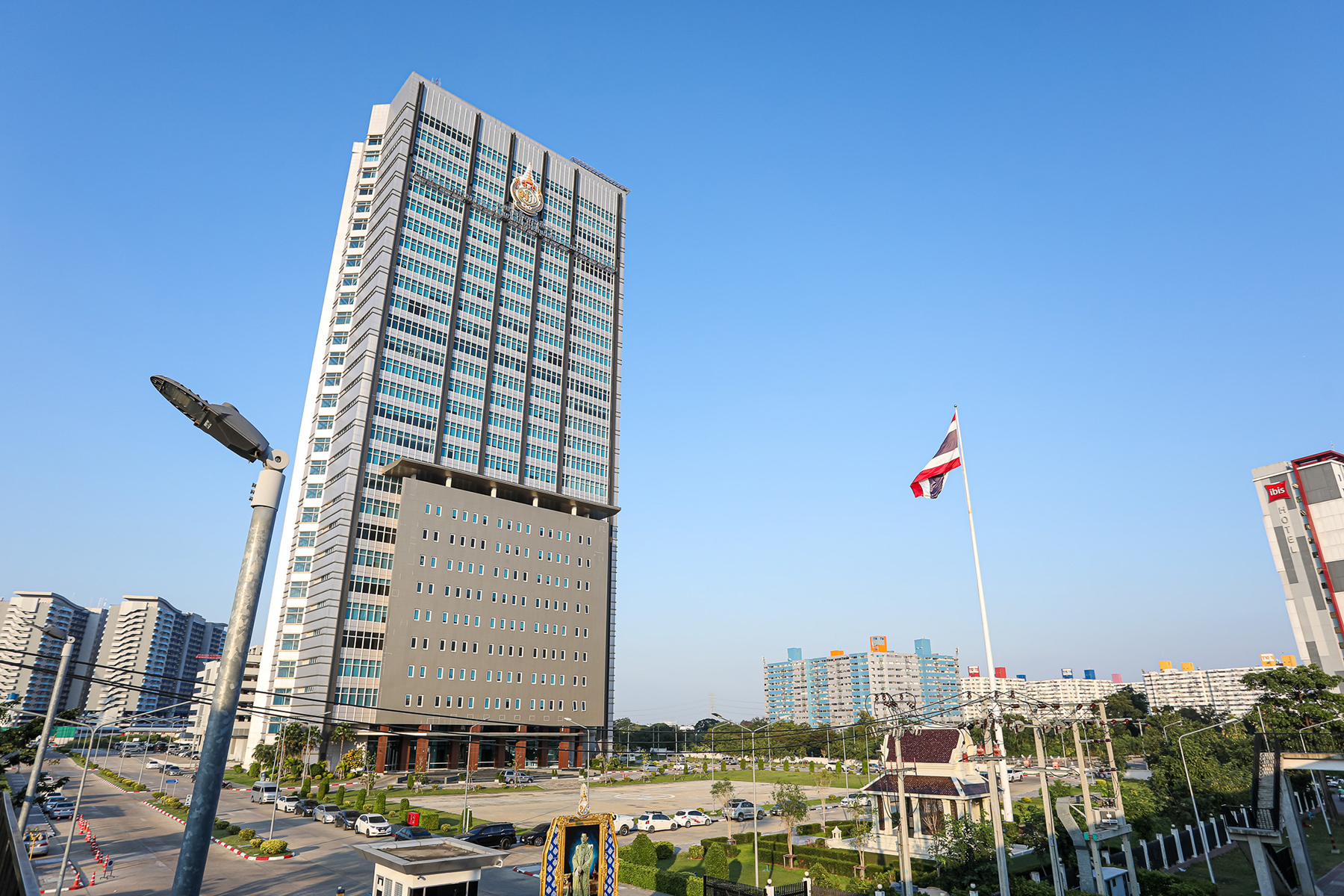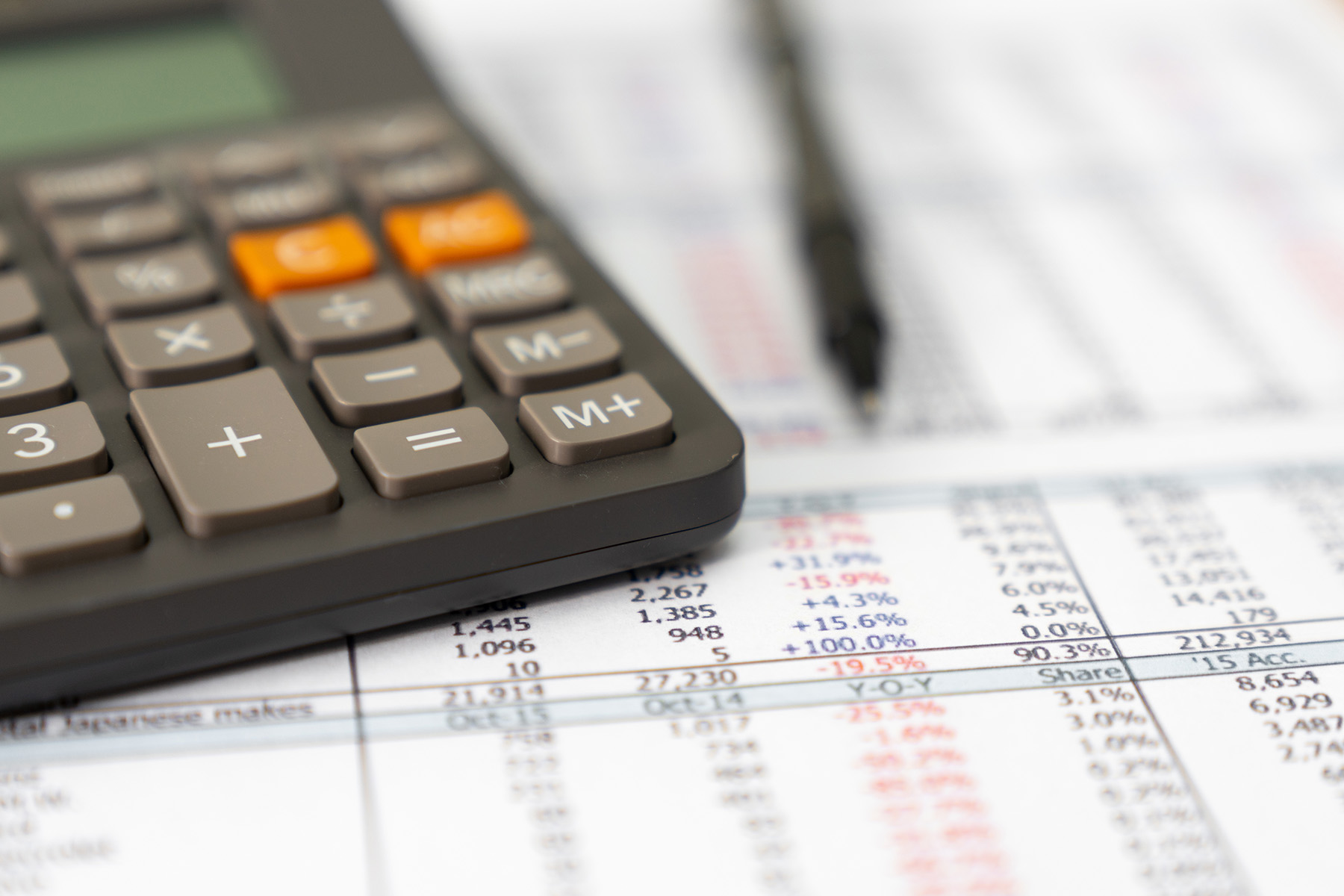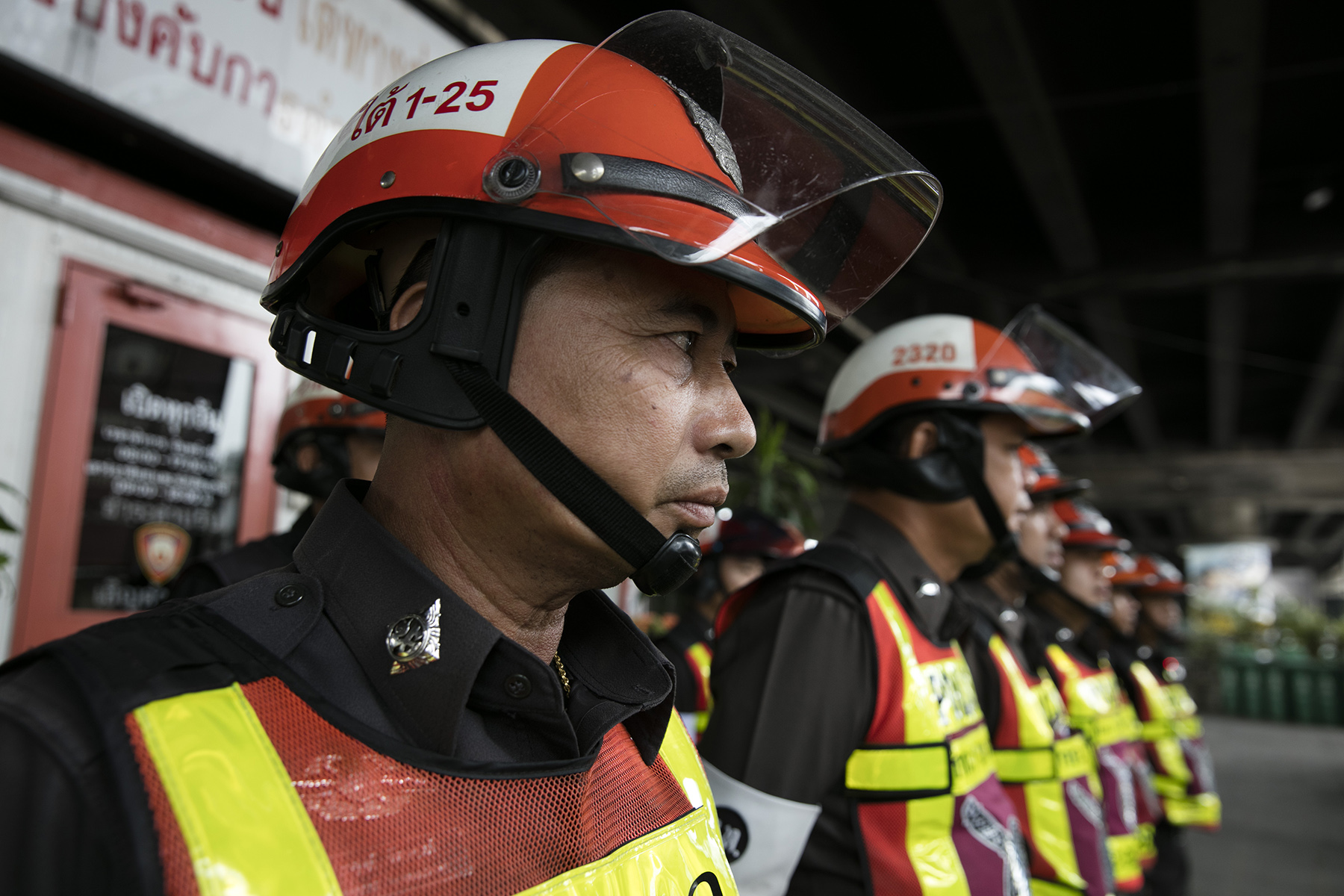When first moving to a new country, understanding its financial system can be difficult. If you’re relocating to Thailand to work or start a business, it’s especially important to know how you’ll be taxed on your income and assets and learn about the allowances and deductions you can use to reduce your tax bill.
Read on for more on the following:
The tax system in Thailand
The Revenue Department of the Ministry of Finance (กระทรวงการคลัง) administers Thailand’s tax system. The country’s tax year runs from 1 January to 31 December.
Thailand’s tax rates for individuals and companies are middling, with a top-income tax rate of 35% and a corporate tax rate of 20%. The government sets rates and deadlines for the whole of Thailand on the following taxes:
- Income tax (ภาษีรายได้ส่วนบุคคล): The standard rates of income tax range from 0% to 35%
- Corporate tax (ภาษีนิติบุคคล): The standard tax rate for companies is 20%
- Inheritance tax (ภาษีมรดก): Applies to estates valued at more than ฿100 million. Rates range from 5–10%
- VAT (ภาษีมูลค่าเพิ่ม): The standard rate is 10%, but a reduced rate of 7% is available until 30 September 2024

The vast majority of taxes in Thailand are charged at the federal level. The most notable exception is the Land and Building Tax (ภาษีที่ดินและสิ่งปลูกสร้าง). If you own land or property in Thailand, you may need to pay this tax on its ‘appraised value.’ An exemption is available for your primary home.
Overall, tax revenues in Thailand are rising, with the Revenue Department collecting ฿1.07 trillion between October 2022 and April 2023, 11% above target. Increased corporate tax revenue and rising VAT and income tax receipts drove the increase.
What is new about taxes in 2024?
The government announces upcoming changes to taxation in the annual Budget. This usually takes place in Spring, but the 2024 Budget has been delayed until May.
New rules affecting the taxation of foreign-sourced income were introduced in January 2024. Previously, Thai tax residents who earned money from employment, business or property overseas only needed to pay Thai income tax on these earnings if they brought them into Thailand in the same year.
However, the new rules mean all foreign-sourced income earned from January 2024 will be subject to Thai income tax when it is brought into Thailand, regardless of the date it enters the country.
Additionally, the reduction of VAT from 10% to 7%, which was due to end in September 2023, has been extended for a further year.
Who pays tax in Thailand?
If you work in Thailand or own a business, you must pay tax on your income or profits.
You will be considered a tax resident if you live in Thailand for 180 days or longer during a year. As such, you must pay Thai income tax on income derived from Thailand and overseas income brought into the country.
If a business’s tax residency is registered in Thailand, it must pay tax on its worldwide income. Conversely, international corporations only pay Thai tax on profits from trade in Thailand.
How does tax in Thailand work for expats?
Thailand has double taxation treaties in place with more than 60 countries. The Revenue Department provides the full list.
These treaties aim to avoid taxing residents or companies on the same income in two countries. The exact rules of these agreements vary, so consider taking expert advice if you might be affected.

If you’re retiring to Thailand, your pension is still considered ‘assessable income,’ even if it comes from abroad. However, you may not need to pay income tax on it if it has already been taxed in another country.
Thailand belongs to the Automatic Exchange of Information (AEOI) scheme, which helps countries tackle tax evasion by enabling the sharing of financial information between the tax authorities.
Do I need a tax ID number in Thailand?
Thai citizens automatically receive a personal identification number (PIN) that they can use for tax purposes. However, internationals liable for taxes require a tax identification number (TIN). You can apply for this in person at the Revenue Department.
Businesses require a separate tax ID number, which they can apply for through the Revenue Deparment. Those making over ฿1.8 million must also register for VAT.
Types of tax in Thailand
Income tax
Income tax in Thailand is payable on income from:
- Employment
- Self-employment
- Bank deposits
- Dividends
- Rental income
Employers in Thailand deduct tax from salaries and wages, ranging from 0–35% across eight income tax brackets. Resident taxpayers pay tax on Thai-sourced earnings and any foreign-earned income remitted to Thailand, while non-residents only pay tax on Thai-sourced revenue.
Anyone who earns more than ฿120,000 (฿220,000 for married partners) must file an annual return, and couples can file an individual or joint return.
The standard income tax rates for 2024 are as follows:
| Income tax band | Tax rate |
| Up to ฿150,000 | 0% |
| ฿150,001-฿300,000 | 5% |
| ฿300,001-฿500,000 | 10% |
| ฿500,001-฿750,000 | 15% |
| ฿750,001-฿1 million | 20% |
| ฿1,000,001-฿2 million | 25% |
| ฿2,000,001-฿5 million | 30% |
| ฿5 million and above | 35% |
Income tax for self-employed workers
Self-employed workers pay income tax at the same rates as those in employment.
The main difference is that you can offset costs incurred while running your business against your tax bill if you’re a freelancer.
There are two options:
- Itemize your actual expenses, providing supporting evidence
- Use the standard deductions specified in the Thai Revenue Code (TRC) (ประมวลรัษฎากรi)
Corporate tax
Businesses must pay corporate tax on their profits at the standard rate of 20%.
There are some exceptions: companies with net profits of less than ฿300,000 pay no corporate tax, and those with earnings of ฿300,001 to ฿3 million pay a reduced rate of 15%.

Businesses must have paid-up capital of less than ฿5 million and income from sales and provision of services below ฿30 million to qualify for reduced rates.
VAT in Thailand
VAT has been in existence in Thailand since 1992. The standard rate is 10%, but the state has reduced it to 7% until the end of September 2024.
Any company with an annual turnover of more than ฿1.8 million must pay VAT. Still, some goods and services are exempt, including:
- Agricultural products
- Newspapers
- Transport services
- Educational services
- Healthcare
The Revenue Department publishes the complete list of exemptions. Companies liable for VAT must file returns by the 15th of each month. If a company fails to register for VAT, this can be punishable by a penalty of up to 200% of the tax due.
Some companies aren’t subject to VAT but must pay Specific Business Tax (SBT – ภาษีธุรกิจเฉพาะ) instead. Most notably, this applies to companies in commercial banking and finance (rate of 3%) and life insurance (rate of 2.5%). An additional 10% of the SBT due is levied as a municipal tax.
Can you get a refund on VAT?
Tourists and visitors to Thailand may claim a VAT refund on goods purchased in the country.

To qualify, you must not be a Thai national or have a home in Thailand and purchase the goods from stores displaying a ‘VAT refund for tourists’ sign. Also, you must leave the country within 60 days of the purchase. The minimum value for qualifying goods is ฿2,000 (including VAT).
Visitors should request a ‘refund application for tourists’ form when purchasing goods. This can either be handed in at the relevant counter at the airport on departure or sent to the Revenue Department. The Tourism Authority of Thailand provides full details.
Property tax
Some homeowners in Thailand must pay their local municipality’s annual Land and Building Tax. Tax rates range from 0.15–3% of the property’s ‘appraised value,’ updated yearly.

A property owned as a primary residence is exempt from tax if the land and property value is less than ฿50 million or ฿10 million when the owner owns the building but not the land. Tax relief is also available for the first three years of ownership.
For those who need to pay, a 50% reduction is available for properties used for residential purposes.
Inheritance tax
Inheritance tax in Thailand is only payable on estates valued at more than ฿100 million. The rate is 5% for ascendants and descendants or 10% for other heirs. Estates that pass on to the deceased’s spouse are exempt from tax.
The estate’s net value must be determined before tax liability can be calculated. Property, securities, and bank deposits are all subject to inheritance tax. However, some exemptions exist, including:
- The deceased’s primary residence
- Funeral expenses
- Debts
- Charitable donations
You may be fined if you do not pay the tax due within 150 days of receipt of the inheritance.
Gift tax
Some high-value gifts are subject to tax, though significant exemptions are available, such as:
- Properties transferred to one of your children (value of up to ฿20 million)
- Maintenance income or gifts from ascendents, descendants, or your spouse (up to ฿20 million)
- Gifts from other people (up to ฿10 million)
- Religious or educational gifts
Gifts that exceed these thresholds are subject to income tax at a rate of 5%. You must state any liability in your tax return.
Capital gains tax
Most capital gains are taxable as income in Thailand and are subject to standard personal income tax rates. If you make gains from bonds, debentures, or debt instruments, you can either pay the standard income tax rates or a flat rate of 15%.

However, some gains are exempt from tax, such as:
- From the sale of shares in companies listed on the Stock Exchange of Thailand
- Investment trusts in mutual funds
- On the sale of securities listed on stock exchanges in the Association of Southeast Asian Nations (ASEAN) member countries
Import and export tax
Thailand has preferential free trade agreements with around 20 countries, but customs duties are collected on imports to Thailand.
The rates are based on ‘ad valorem’ rates (i.e., a percentage of the item’s suggested selling price) or the weight or quantity of the imported goods. Duties range from 0–80%.
Excise taxes are charged on some ‘luxury’ items. Also, alcohol, cigarettes, petrol, motor vehicles, batteries, perfumes, and cosmetics may all be subject to tax. The exact rates are calculated via a complex formula.
Importantly, the Thai government has reduced customs duty and excise tax on imported electric vehicles as part of its environmental reforms.
Stamp duties
Stamp duties (อากรแสตมป์) are payable on documents (known as ‘instruments’) filed by companies with the Thai government, for instance:
- Land purchases and transfers
- Stock transfers
- Insurance policies
The Revenue Department outlines the rates in its stamp duty schedule. For example, the transfer of shares or bonds issued by a company is charged at ฿1 for every ฿1,000 value.
Carbon tax
Plans are afoot to introduce a carbon tax on the energy, transport, and industrial sectors to reduce carbon emissions and encourage more companies to use renewable energy. This is part of Thailand’s attempts to reach its carbon-neutral goal by 2050.
Tax avoidance and evasion in Thailand
No official figures are published on the amount lost to tax evasion, but the Tax Justice Network estimates an annual ฿880 million loss (i.e., 1.1% of Thailand’s tax revenue). This is still below the global average of 2.8% of tax revenue. The body estimates that around 75% of the offenders are private individuals.
Thailand has been cracking down on tax avoidance and increasing transparency; it made its first tax information exchanges under the AEOI scheme in 2023, signing up to the Convention on Mutual Administrative Assistance in Tax Matters (CRS) in 2020.
Tax fines and penalties
Penalties are levied against individuals and companies who don’t adhere to Thailand’s tax rules. Regarding minor offenses, a fine of ฿2,000 applies to taxpayers who file their return late, plus a penalty surcharge of 1.5% of the tax due per month. If you’re granted an extension, this penalty halves to 0.75%. For corporate tax returns, the fine is ฿4,000 and a 1.5% surcharge.
Failing to file an annual return brings about higher penalties. A fine of ฿2,000 is levied, but the imposed fine equals twice the amount of tax owed. If you intentionally fail to file a return to avoid paying tax, you could face a fine of up to ฿5,000 and imprisonment of up to six months.
If you’re suspected of tax evasion through fraudulent means (e.g., filing an incorrect return to understate your liability), you could face penalties ranging from ฿2,000–200,000 and imprisonment of between three months and seven years.
Tax advice in Thailand
If you have specific questions about your tax liability in Thailand, you should consider seeking professional advice from a financial expert; ensure that they are accredited by the Thailand Federation of Accounting Professionals (TFAC – สภาวิชาชีพบัญชีแห่งประเทศไทย).
Useful resources
- Revenue Department – governmental office overseeing Thailand’s tax system, also includes a list of double taxation treaties
- Tourism Thailand – information on VAT refunds for visitors to Thailand
- Revenue Tax Code (TRC) – official tax information







